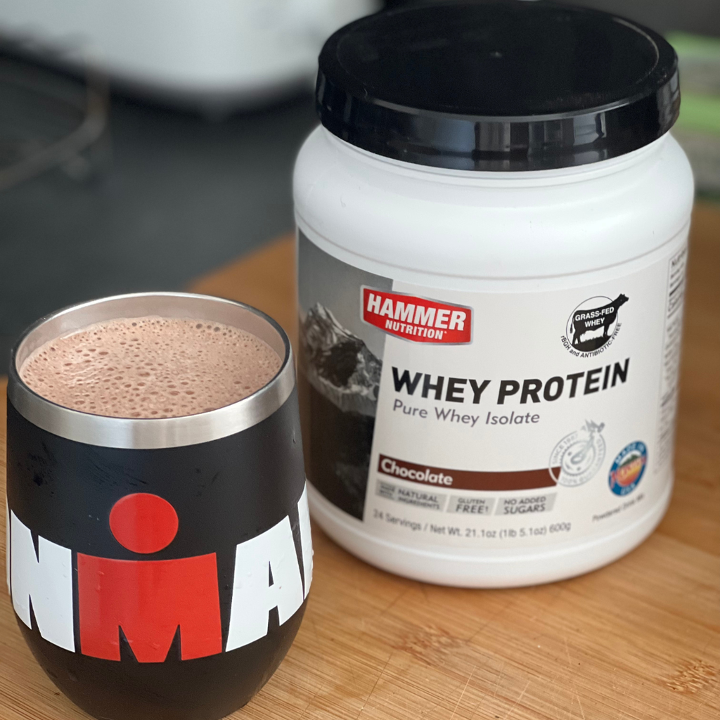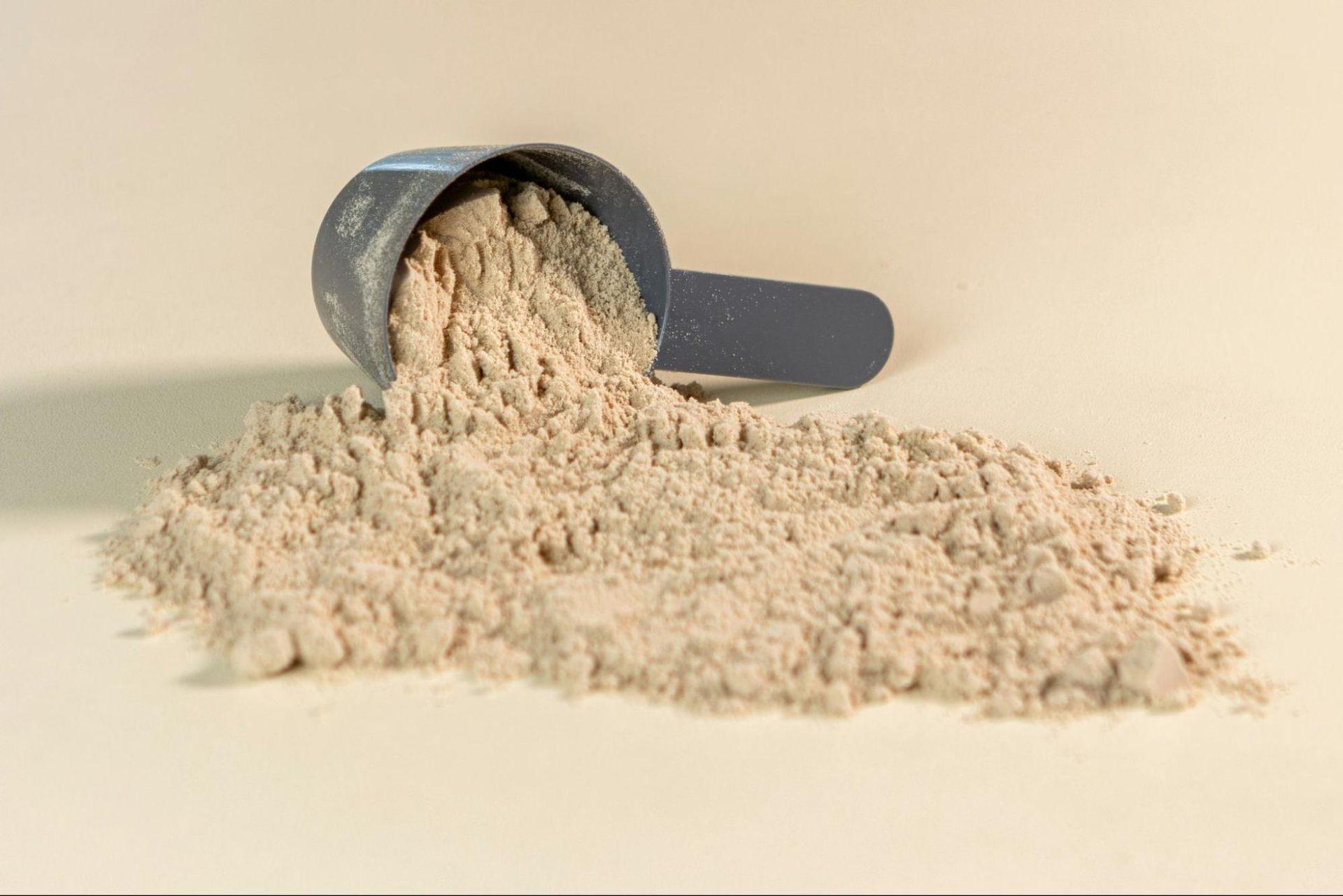Understanding Whey Protein & Its Benefits

When I first stumbled upon the world of dietary supplements, whey protein consistently popped up as a staple choice for fitness enthusiasts and health-conscious folks alike. Its reputation comes with good reason, as whey protein health benefits are backed by robust scientific research. Whether I'm fine-tuning my nutrition, aiming to support my muscle recovery better, or simply looking for a quick and efficient protein source, whey protein supplements are my go-to option.
The secret to whey protein’s efficacy lies in its remarkable whey protein nutrition profile. Derived from the cheese-making process, this powerhouse supplement has it all—complete amino acids, including BCAAs, unsurpassed digestibility, and a swift rate of whey protein absorption into my system. It's fascinating how this byproduct of cheese has turned into one of the most trusted allies in my dietary arsenal. Discovering the benefits of whey protein has revolutionized not just my workouts, but my overall wellbeing.
But it's not just about latching onto the latest wellness trend; it's about understanding how whey protein digestion and assimilation work to empower my body's own processes. Let's dive into the why and how of whey protein, and why it might just be the nourishment boost you've been looking for.

Key Takeaways
Whey protein provides all essential amino acids for optimal health.
It is renowned for its rapid digestion and absorption, making it ideal for post-workout recovery.
Whey protein supplements serve as a convenient source of high-quality dietary protein.
Benefits of whey protein extend to muscle building, weight management, and overall nutritional intake.
Understanding whey protein digestion can maximize the efficacy of supplement usage.
What is Whey Protein
As someone deeply interested in health and nutrition, I've come across various protein sources, but whey protein consistently stands out. It's revered for its complete amino acid profile, making it a top-notch whey protein source for fitness enthusiasts and those looking to improve their diet. Plus, it's incredibly efficient when it comes to digestibility and absorption, making it a staple in many supplement regimens.
A High-Quality Protein Source
When we talk about whey protein processing, we're often referring to how this high-quality protein is extracted from whey, the liquid byproduct of cheese production. Its claim to fame is its full spectrum of essential amino acids, which are vital for our bodies and are not synthesized internally, necessitating their presence in our diet.
Types of Whey Protein: Concentrate, Isolate, Hydrolysate
Now, exploring the types of whey protein, you'll encounter three main categories:
Whey Protein Concentrate (WPC): This type is popular due to its balanced composition and affordability, containing a lower protein percentage but keeping some fat and lactose.
Whey Protein Isolate (WPI): If you're looking for purity, WPI is your go-to. It's processed to remove almost all fat and lactose, packing a punch with at least 90% protein content.
Whey Protein Hydrolysate (WPH): For those seeking rapid absorption, WPH is the premier choice as it is essentially pre-digested, allowing for swift assimilation into your system.
Whey Protein in Sports Nutrition and Daily Diet
Incorporating whey protein concentrate, isolate, or hydrolysate into my daily routine has been a game-changer. Athletes and health-conscious individuals alike can benefit from its muscle protein synthesis capabilities, making it a vital component of sports nutrition. Moreover, it's a convenient solution for anyone aiming to boost their daily protein intake with a high-quality supplement.
Comprehensive Benefits of Whey Protein

As someone who's always seeking ways to optimize health and wellness, I've found that whey protein isn't just a supplement; it's a powerhouse for fostering an array of whey protein health benefits. From personal experience and extensive reading, the whey protein benefits are robust, encompassing everything from whey protein for muscle building to whey protein for weight loss. Let me share with you the compelling reasons why whey protein can be a game-changer for your health and fitness journey.
Muscle Building: Igniting my workout results, whey protein provides essential amino acids, particularly leucine, which is critical for muscle growth and recovery. Its ability to spur muscle synthesis means we're not just working out hard but also smart.
Weight Management: When I'm looking to cut calories without losing steam, the satiating power of whey protein makes it a trusty ally. It helps curb my appetite, encouraging the preservation of lean muscle which, in turn, maintains a healthier metabolism.
Blood Sugar Control: In a society where diabetes is a growing concern, including whey protein in my diet helps in regulating blood sugar levels. This is especially important for those needing to enhance their insulin sensitivity.
Heart Health: It's not just about muscle and weight; whey protein contributes to a heart-healthy lifestyle by potentially reducing blood pressure and inflammation, thus supporting an overall robust cardiovascular system.
From fortifying muscles to managing weight, the versatility of whey protein makes it a valuable addition to my daily routine. Its expansive scope of benefits supports the notion that taking care of one's body can be both a delicious and strategic endeavor.
Whey Protein's Role in Muscle Building and Recovery
For fitness enthusiasts and athletes, understanding how to use whey protein effectively for muscle gain is incredibly beneficial. Whey protein is not only foundational in sports nutrition but is also widely acclaimed for its role in muscle growth and recovery post-workout.
How Whey Protein Promotes Muscle Growth
My experience with whey protein for muscle growth has shown it to be a powerhouse in facilitating lean muscle gains. The high-quality protein works to stimulate muscle protein synthesis – the process through which the body builds new muscle tissue. This is particularly important after training sessions when muscles are receptive to nutrients that can spur their repair and growth.
The Importance of Leucine in Muscle Synthesis
Leucine serves as a critical trigger for muscle building. This essential amino acid is abundantly found in whey protein and plays a pivotal role in jumpstarting muscle synthesis. By integrating it into my diet, I’ve noticed tangible improvements in muscle mass and a reduction in muscle recovery time.
Optimizing Recovery Post-Workout with Whey
When it comes to recovery, whey protein reigns supreme. Its rapid absorption rate means my muscles receive essential nutrients quickly after a workout, cutting down on recovery time and enhancing muscle repair. This not only propels my muscle gain journey but also emphasizes the role of whey protein in weight loss by helping to maintain lean muscle tissue.

Feature | Benefit |
High in Leucine | Promotes muscle protein synthesis and growth |
Fast-Digesting | Quickly absorbed for faster muscle repair |
Low in Fat & Lactose | Ideal for muscle definition and weight loss |
Enhances Recovery | Reduces downtime, allowing for more frequent training |
Supports Weight Loss | Satiating effect promotes a calorie deficit while preserving muscle |
As I explore whey protein's diverse applications, its efficacy in supporting athletic performance, muscle gain, and overall body composition improvement is undeniable. Whether one is aiming for muscle growth or considering the role of whey protein in weight loss, it emerges as a versatile supplement aligned with diverse fitness goals.
Whey Protein for Weight Management and Loss
When it comes to weight management, my journey has revealed that whey protein weight loss strategies are not just about cutting calories but about making smarter food choices that support metabolism and satiety. It turns out that the best whey protein for weight loss isn't just a claim but a reality supported by research and personal experience.

Satiety and Hunger Regulation with Whey Protein
I've noticed that incorporating whey protein into my meals leads to a significant decrease in hunger pangs throughout the day. It's that unique ability of whey to provide a sense of fullness and satisfaction which makes it an essential ally in my dietary regimen.
Whey's Impact on Metabolism and Fat Loss
The thermogenic properties of whey don't just end with satiety. It elevates calorie burning too, a fact that has helped me keep up with my weight loss efforts, turning my body into a fat-burning machine even during periods of rest.
Comparing Whey with Other Protein Sources for Weight Loss
It's fascinating to see how whey protein vs other proteins stacks up, particularly concerning weight management. Whey stands out, not just for its muscle-building prowess but also for its fat loss capabilities, aiding in the retention of lean muscle mass—a crucial aspect of a leaner physique.
Cardiovascular Health Benefits of Whey Protein
Whey protein's role in supporting heart health is as significant as it is promising. Not only am I impressed by the way whey protein contributes to my muscle growth and physical performance, but I am also fascinated by the potential benefits it possesses for the heart. As an avid user of whey protein supplements, I have delved into the scientific research that highlights the connection between whey protein and cardiovascular wellness.
The regular intake of whey protein has been observed to have a noticeable effect on blood pressure regulation. This is particularly intriguing for athletes like me, who are constantly looking for natural ways to maintain optimal health. Whether you're a male or female athlete, incorporating whey protein into your dietary regime could support your endurance and not just your muscle mass.
Moreover, whey protein's benefits are not exclusive to athletes. Men and women from all walks of life may find that whey protein aids in managing their blood pressure levels and, as a result, their overall cardiovascular health. Its influence stems from specific bioactive compounds in whey known as lactokinins, which serve as natural ACE-inhibitors. These components are key to whey protein's ability to aid in reducing hypertension, a critical risk factor for developing heart disease.
Let's discuss how whey protein digests and works within our bodies. Its high bioavailability means that it's efficiently broken down and absorbed, providing a swift supply of amino acids that are essential for recovery and heart function. This process adds to whey protein's appeal, offering significant benefits without negatively impacting the digestive system. Now, I'd like to present the research on whey protein and heart health in a more digestible format:
Health Marker | Impact of Whey Protein |
Blood Pressure | May reduce systolic and diastolic BP |
LDL Cholesterol | Significant decrease observed in levels |
Totale Cholesterol | Overall reduction in cholesterol readings |
Triglycerides | Levels decreased, improving heart health |
Blood Sugar Regulation | Improves glucose tolerance and levels |
The array of benefits is hard to ignore. Both whey protein for men and whey protein for women have shown a positive impact on the heart, and I look forward to seeing how further research will continue to uncover the full scope of whey protein's cardiovascular benefits.
Adopting whey protein into your nutrition plan is more than just about building strength; it's about nurturing your heart and investing in your long-term health. As we continue to unfold the extensive advantages of whey protein, incorporating this supplement could be a significant step towards a healthier, more vigorous heart.
Whey Protein and Blood Sugar Regulation
In my exploration of dietary supplements, I've discovered that whey protein isn't just for athletes and bodybuilders—it's also a powerful ally for anyone monitoring their blood sugar levels. Delving into how whey protein works, especially in comparison to plant protein and casein, I have been fascinated by its ability to influence insulin sensitivity. This capability is not only promising for managing my daily nutritional intake but also for its potential role in diabetes management.
The Role of Whey in Insulin Sensitivity and Diabetes Management
Managing my blood sugar can be challenging, yet whey protein supplements have become a valuable component of my regimen. The way whey protein enhances the body's insulin response is akin to the mechanisms of some diabetes medications. More than just a tool for maintaining muscle mass, whey protein's health benefits extend to aiding in the sensitive balance of blood sugar management. For me, especially on days when my meals are higher in carbohydrates, including whey protein helps mitigate spikes in my glucose levels.
Using Whey Protein to Stabilize Glucose Levels
Despite an abundance of dietary options, choosing whey protein over plant protein or casein has made a notable difference in stabilizing my blood sugar. It feels empowering to observe how my glucose readings stay more consistent when I incorporate whey before meals. Moreover, recent check-ups reveal that my long-term blood sugar control markers, such as HbA1c, have improved. It reassures me that my choice in whey protein supplements is not just supporting my muscles but also playing a pivotal role in regulating my overall health. By integrating whey protein into my diet, I'm able to enjoy a delicious and healthy way to manage my wellness goals.
Whey Protein Powder
- Minimises post-exercise soreness
- Maintains and repairs lean muscle tissue
- Superb immune system support
- Glutamine-fortified to enhance recovery
FAQ
What is Whey Protein, and Why is it Considered a Superior Supplement?
Whey protein is a high-quality, complete protein extracted during the cheese-making process and is highly regarded for its full spectrum of essential amino acids, exceptional digestibility, and rapid absorption into the body. It's considered superior due to its comprehensive nutritional profile and robust health benefits, making it a staple in sports nutrition and everyday healthy diets.
What Are the Different Types of Whey Protein Available?
There are three main types of whey protein: Concentrate (WPC), Isolate (WPI), and Hydrolysate (WPH). Whey Protein Concentrate has lower protein content and includes some fat and lactose. Whey Protein Isolate contains 90% or more protein with minimal fat and lactose. Whey Protein Hydrolysate is pre-digested for even faster absorption into the body.
How Does Whey Protein Support Muscle Building?
Whey protein promotes muscle growth primarily due to its high leucine content, an essential amino acid that stimulates muscle protein synthesis. This makes it a valuable asset for bodybuilders and athletes seeking to increase muscle mass and strength, as well as individuals looking to prevent age-related muscle decline.
Can Whey Protein Help with Weight Loss?
Absolutely! Whey protein can help with weight loss by providing a satiating effect, which helps control appetite and reduces overall calorie intake. Its high thermogenic effect may also boost metabolism, leading to increased calorie burning. When consumed as part of a balanced diet, whey protein can contribute to a more significant loss of fat while preserving lean muscle mass.
What Makes Whey Protein Beneficial for Cardiovascular Health?
Whey protein can have a positive impact on cardiovascular health by helping to lower blood pressure, reduce 'bad' LDL cholesterol, and minimize triglyceride levels. It can also improve blood sugar levels and insulin sensitivity, which are significant factors in cardiovascular health.
How Does Whey Protein Aid in Blood Sugar Regulation, Especially for Diabetic Patients?
Whey protein assists in blood sugar regulation by improving insulin response and increasing insulin sensitivity. When taken before meals, it can help stabilize blood glucose levels. This, along with its potential to improve long-term blood sugar control markers like HbA1c, makes it a handy tool for managing diabetes.
How Does Whey Protein Compare with Plant-Based Proteins in Terms of Nutritional Value?
Whey protein generally has a higher essential amino acid content, specifically leucine, which is critical for muscle building and recovery, compared to most plant-based proteins. It is also absorbed faster and has a higher biological value, which means it's more efficiently utilized by the body for protein synthesis.
When Is the Best Time to Take Whey Protein Supplements for Maximum Benefit?
The optimal time to consume whey protein depends on your goals. For muscle building and recovery, it's best to take it within an hour after working out. If you're using whey protein for weight management, having it as a meal replacement or snack between meals can help control hunger and reduce overall calorie consumption.
Are There Any Side Effects from Taking Whey Protein Supplements?
Whey protein is generally safe and well-tolerated. However, some individuals may experience side effects such as digestive discomfort, bloating, or allergic reactions, especially if they are lactose-intolerant or allergic to dairy. It's essential to consult a healthcare provider before starting any new supplementation.
Can Vegetarians or Vegans Consume Whey Protein?
Vegetarians can consume whey protein as it's derived from milk. However, it is not suitable for vegans since it's an animal-based product. Plant-based protein alternatives are available for those following a vegan lifestyle.







![[FBAB] Hammer Vegan Energy Bar (Almond - Raisin, (12 x 1) BOX)](/web/image/product.product/1285/image_256)
![[HBB1] Hammer Energy Gel - Easy Energy During Exercise (Banana, 1 Serving)](/web/image/product.product/1256/image_256)